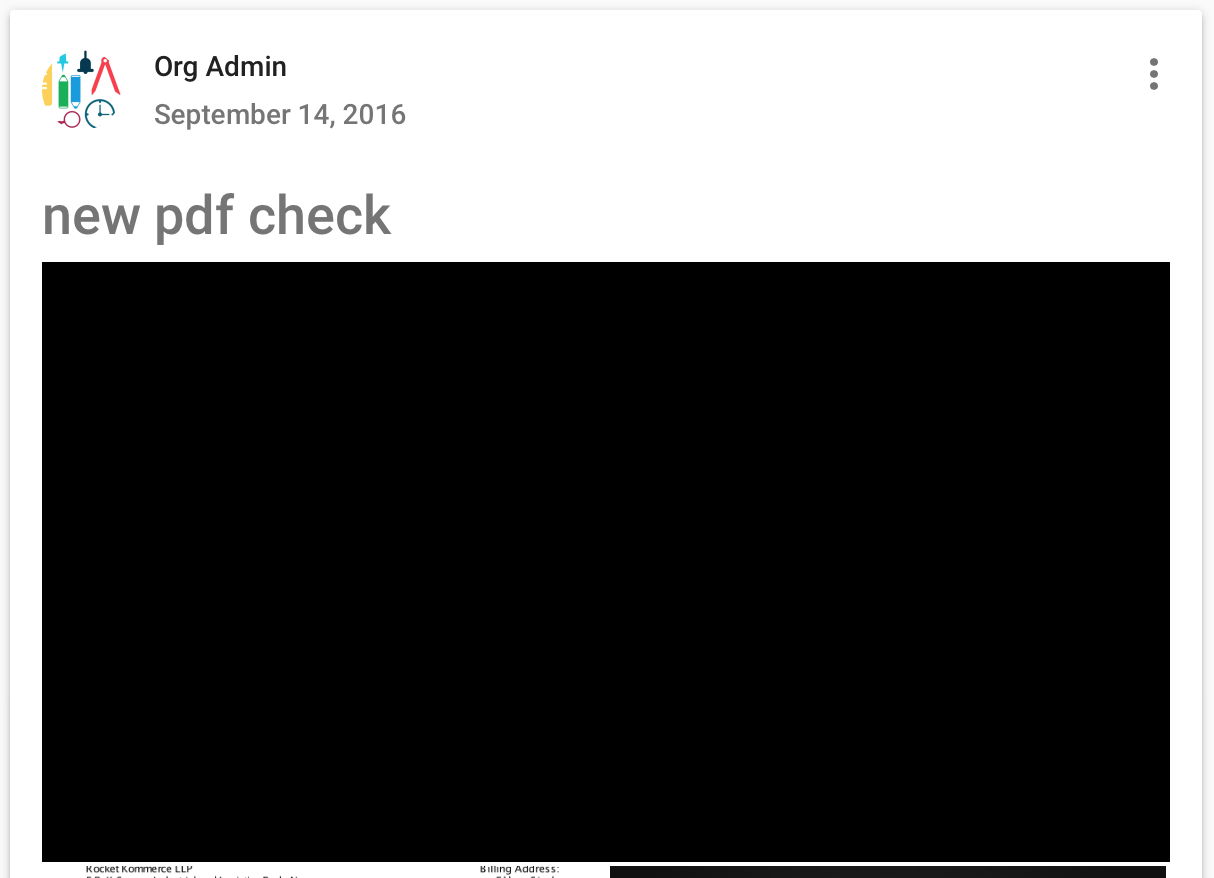SVG-Powered component to easily create placeholder loadings (like Facebook's cards loading).
Features
⚙️ Customizable: Feel free to change the colors, speed, sizes and even RTL;👌 Plug and play: with many presets to use, see the examples;✏️ DIY: use the create-content-loader to create your own custom loaders easily;📱 React Native support: same API, as same powerful features;⚛️ Really lightweight: less than 2kB and 0 dependencies for web version;
Index
Getting Started
npm i react-content-loader --saveyarn add react-content-loaderFor React Native
npm i react-content-loader react-native-svg --saveyarn add react-content-loader react-native-svgCDN from JSDELIVR
Usage
There are two ways to use it:
1. Presets, see the examples:
import ContentLoader, { Facebook } from 'react-content-loader'
const MyLoader = () => <ContentLoader />
const MyFacebookLoader = () => <Facebook />2. Custom mode, see the online tool
const MyLoader = () => (
<ContentLoader viewBox="0 0 380 70">
{/* Only SVG shapes */}
<rect x="0" y="0" rx="5" ry="5" width="70" height="70" />
<rect x="80" y="17" rx="4" ry="4" width="300" height="13" />
<rect x="80" y="40" rx="3" ry="3" width="250" height="10" />
</ContentLoader>
)Still not clear? Take a look at this working example at codesandbox.io
Or try the components editable demo hands-on and install it from bit.dev
Native
react-content-loader can be used with React Native in the same way as web version with the same import:
1. Presets, see the examples:
import ContentLoader, { Facebook } from 'react-content-loader/native'
const MyLoader = () => <ContentLoader />
const MyFacebookLoader = () => <Facebook />2. Custom mode
To create custom loaders there is an important difference: as React Native doesn't have any native module for SVG components, it's necessary to import the shapes from react-native-svg or use the named export Rect and Circle from react-content-loader import:
import ContentLoader, { Rect, Circle } from 'react-content-loader/native'
const MyLoader = () => (
<ContentLoader viewBox="0 0 380 70">
<Circle cx="30" cy="30" r="30" />
<Rect x="80" y="17" rx="4" ry="4" width="300" height="13" />
<Rect x="80" y="40" rx="3" ry="3" width="250" height="10" />
</ContentLoader>
)Options
animate?: boolean
Defaults to true. Opt-out of animations with false
title?: string - Web only
Defaults to Loading interface.... It's used to describe what element it is. Use ''(empty string) to remove.
baseUrl?: string - Web only
Required if you're using <base url="/" /> document <head/>.
Defaults to an empty string. This prop is common used as: <ContentLoader baseUrl={window.location.pathname} /> which will fill the SVG attribute with the relative path. Related #93.
speed?: number
Defaults to 1.2. Animation speed in seconds.
interval?: number - Web only
Defaults to 0.25. Interval of time between runs of the animation, as a fraction of the animation speed.
viewBox?: string
Use viewBox props to set a custom viewBox value, for more information about how to use it, read the article How to Scale SVG.
gradientRatio?: number - Web only
Defaults to 1.2. Width of the animated gradient as a fraction of the view box width.
rtl?: boolean
Defaults to false. Content right-to-left.
backgroundColor?: string
Defaults to #f5f6f7 which is used as background of animation.
foregroundColor?: string
Defaults to #eee which is used as the foreground of animation.
backgroundOpacity?: number - Web only
Defaults to 1. Background opacity (0 = transparent, 1 = opaque) used to solve an issue in Safari
foregroundOpacity?: number - Web only
Defaults to 1. Animation opacity (0 = transparent, 1 = opaque) used to solve an issue in Safari
style?: React.CSSProperties
Defaults to an empty object.
uniqueKey?: string - Web only
Defaults to random unique id. Use the same value of prop key, that will solve inconsistency on the SSR, see more here.
See all options live
Examples
Facebook Style
import { Facebook } from 'react-content-loader'
const MyFacebookLoader = () => <Facebook />Instagram Style
import { Instagram } from 'react-content-loader'
const MyInstagramLoader = () => <Instagram />Code Style
import { Code } from 'react-content-loader'
const MyCodeLoader = () => <Code />List Style
import { List } from 'react-content-loader'
const MyListLoader = () => <List />Bullet list Style
import { BulletList } from 'react-content-loader'
const MyBulletListLoader = () => <BulletList />Custom Style
For the custom mode, use the online tool.
const MyLoader = () => (
<ContentLoader
height={140}
speed={1}
backgroundColor={'#333'}
foregroundColor={'#999'}
viewBox="0 0 380 70"
>
{/* Only SVG shapes */}
<rect x="0" y="0" rx="5" ry="5" width="70" height="70" />
<rect x="80" y="17" rx="4" ry="4" width="300" height="13" />
<rect x="80" y="40" rx="3" ry="3" width="250" height="10" />
</ContentLoader>
)Troubleshooting
Responsive - Mobile version
In order to avoid unexpected behavior, the package doesn't have opinioned settings. So if it needs to be responsive, have in mind that the output of package is a regular SVG, so it just needs the same attributes to become a regular SVG responsive, which means:
import { Code } from 'react-content-loader'
const MyCodeLoader = () => (
<Code
width={100}
height={100}
viewBox="0 0 100 100"
style={{ width: "100%" }}
/>
)Server-side rendering (SSR) - Match snapshot
As the main component generates random values to match the id of the SVG element with background style, it can encounter unexpected errors and unmatching warning on render, once the random value of id will be generated twice, in case of SSR: server and client; or in case of snapshot test: on the first match and re-running the test.
To fix it, set the prop uniqueKey, then the id will not be random anymore:
import { Facebook } from 'react-content-loader'
const MyFacebookLoader = () => <Facebook uniqueKey="my-random-valye" />Alpha is not working: Safari / iOS
When using rgba as a backgroundColor or foregroundColor value, Safari does not respect the alpha channel, meaning that the color will be opaque. To prevent this, instead of using a rgba value for backgroundColor/foregroundColor, use the rgb equivalent and move the alpha channel value to the backgroundOpacity/foregroundOpacity props.
{/* Opaque color in Safari and iOS */}
<ContentLoader
backgroundColor="rgba(0,0,0,0.06)"
foregroundColor="rgba(0,0,0,0.12)">
{/_ Semi-transparent color in Safari and iOS _/}
<ContentLoader
backgroundColor="rgb(0,0,0)"
foregroundColor="rgb(0,0,0)"
backgroundOpacity={0.06}
foregroundOpacity={0.12}>
Black box in Safari / iOS (again)
Using the base tag on a page that contains SVG elements fails to render and it looks like a black box. Just remove the base-href tag from the <head /> and issue solved.
Browser supports SVG-Animate
Old browser doesn't support animation in SVG (compatibility list), and if your project must support IE for examples, here's a couple of ways to make sure that browser supports SVG Animate:
window.SVGAnimateElementdocument.implementation.hasFeature("http://www.w3.org/TR/SVG11/feature#SVG-Animation", "1.1")- Or even use https://modernizr.com/
Similar packages
- React Native: rn-placeholder, react-native-svg-animated-linear-gradient;
- Preact;
- Vue.js: vue-content-loading, vue-content-loader;
- Angular: ngx-content-loading, ngx-content-loader.
Development
Fork the repo then clone it
$ git clone [email protected]:YourUsername/react-content-loader.git && cd react-content-loader
$ npm i: Install the dependencies;
$ npm run build: Build to production;
$ npm run dev: Run the docz to see your changes;
$ npm run test: Run all tests: type checking, unit tests on web and native;
$ yarn test:watch: Watch unit tests;
$ yarn tsc: Typescript checking;
$ yarn tsc:watch: Typescript checking with watching;
Commit messages
Commit messages should follow the commit message convention so, changelogs could be generated automatically by that. Commit messages are validated automatically upon commit. If you aren't familiar with the commit message convention, you can use yarn commit (or npm run commit) instead of git commit, which provides an interactive CLI for generating proper commit messages.









